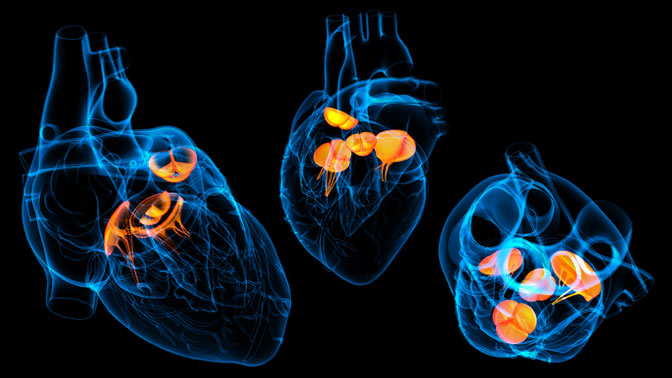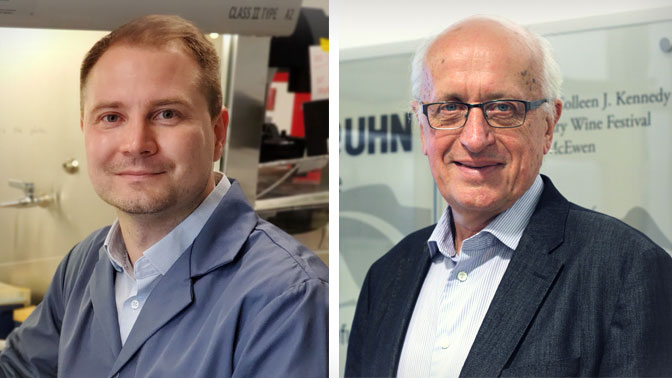
Drs. Alexander Mikryukov and Gordon Keller at the McEwen Stem Cell Institute recently discovered how to produce endocardial cells—a type of cell that lines the interior of the heart—from stem cells in the laboratory.
The stem cells that they used are known as human pluripotent stem cells. These cells are capable of giving rise to all of the different cell types found in the human body. Devising ways to coax these stem cells to produce specific types of cells is an area of ongoing research.
“Endocardial cells are formed during one of the earliest stages of heart development and function to stimulate the formation of the first muscle tissue in the heart,” explains Dr. Mikryukov, the lead author of the study. “They also produce cells that are part of the blood vessels and the valves of the heart.”
The human body is made up of roughly 37 trillion cells; all of them originate from a single cell—the fertilized egg. The path of growth from one cell to 37 trillion is highly complex—everything must happen at the right time and in the right place.
In the body, cells use chemical signals to guide the development of new cells so that they have the characteristics needed to perform their role. To identify which chemicals are responsible for giving rise to endocardial cells, the team recreated conditions for early heart development using pluripotent stem cells as an experimental model. They also used advanced gene sequencing approaches that are capable of providing a snapshot of the genes expressed in each individual cell.
These analyses revealed that the protein BMP10 plays a key role in regulating the development of endocardial cells in early heart development. They also showed that the lab-derived endocardial cells had very similar characteristics to embryonic endocardial cells.
“Our results highlight the power of using stem cells as a model to identify the mechanisms behind the formation of the heart tissues during embryonic development,” says Dr. Keller, senior author of the study.
The ability to produce endocardial cells in the laboratory opens new avenues to modelling heart development and disease—and could help to accelerate the development of treatments for heart conditions such as valve diseases.
This work was supported by the Canadian Institutes of Health Research and the Toronto General & Western Hospital Foundation. G Keller holds a Tier 1 Canada Research Chair in Embryonic Stem Cell Biology.
Mikryukov AA, Mazine A, Wei B, Yang D, Miao Y, Gu M, Keller GM. BMP10 Signaling Promotes the Development of Endocardial Cells from Human Pluripotent Stem Cell-Derived Cardiovascular Progenitors. Cell Stem Cell. 2020 Oct 27. doi: 10.1016/j.stem.2020.10.003.

Dr. Alexander Mikryukov (left) is the lead author of the study; Dr. Gordon Keller (right) is the senior author of the study.




